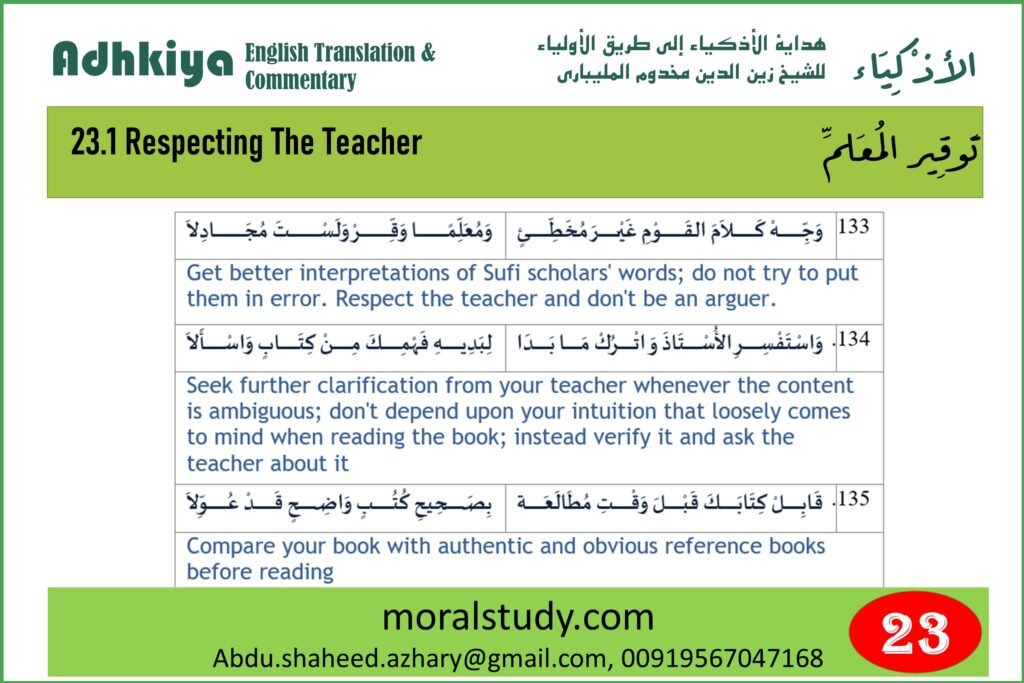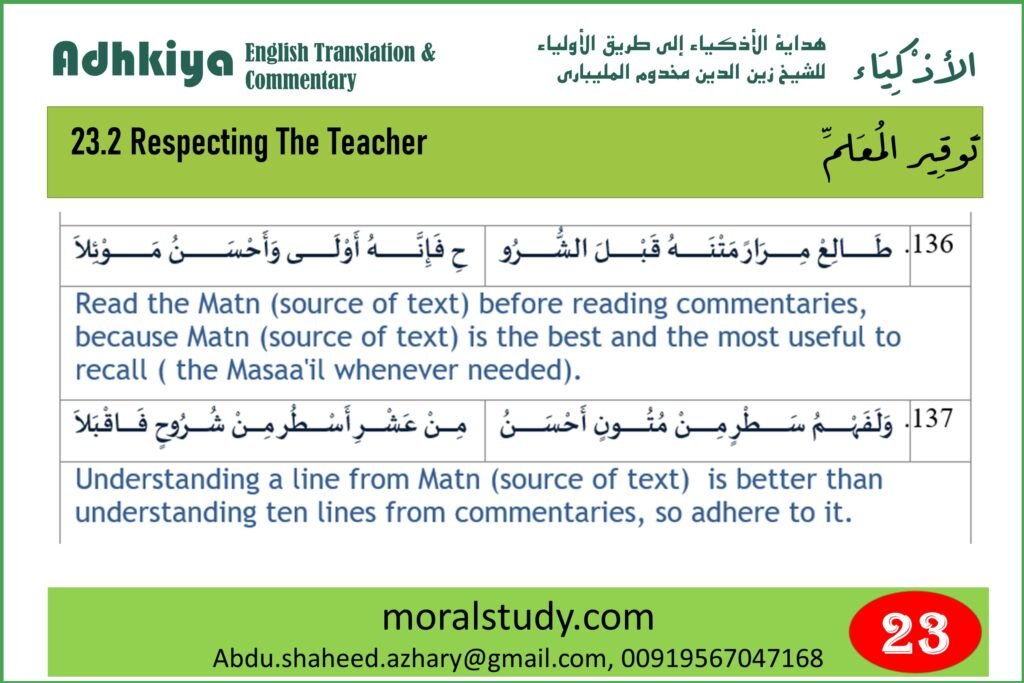Sufis are a wonderful group of people. They enjoy remembering Allah and praying to Him more than anyone else does. Their words should not be taken ‘as they are’ when discussing their love and divine relations. The most appropriate way is to justify and find some interpretations to such words.
Their words are not digestible enough to the average mind. Surely every eligible scholar of Islam has a full right to oppose any false statements even if they arise from ‘the special status’ of Sufis. But it is better not to use that right if one finds a Sufi most often on the right path and sometimes he ‘allegedly’ commits a mistake. Instead, he should find some justifications and be on the safe and cautious side of the issue.
A teacher must master every branch of knowledge. Some branches depend upon talent while others depend upon a Master. Reading the Quran, Fiqh, Aqedah and Tasawwuf are some of the critical subjects that can only be learned through a master. As for a student of religion, his teacher plays an important role in shaping his personality and imparting knowledge. The student should seek the help of the teacher wherever he finds difficulty in understanding a text.
The teacher is required to be very authentic and reliable in his teachings. His teachings are the light of the students’ lives. Before coming to class room, he should be very careful about the subject. The Islamic teacher is not just giving the linguistic meaning of the words from text books, rather he should be aware of the different aspects of the subject by reading some of the more accurate books on the subject.
Traditional Islamic books are of two types: Matn and Shara’h. Usually a Matn contains very brief and significant part of a book. Ancient scholars used to memorize Matn completely before entering into deep study of any branch of knowledge. The idea was to be able to retrieve major principles of that specific branch of knowledge from memory whenever needed. It was a really useful and convenient way of studying.
Shara’h is an explanation of the Matn. It gives further information about various parts of the subject mentioned in the source text (Matn). Although Shara’h is important in understanding the true meaning of Matn, it is recommended to read out Matn many times until he memorizes it.
For these reasons, students of knowledge are required to give much important to Matn.
According to the Islamic jurisprudence view, there are two types of obligations: Fard Ain and Fard Kifaya. Those obligations that are individually responsible are called Fard Ain such as five times prayers and Ramadan fasting. Those obligations that are collectively responsible are called Fard Kifaya such as calling for five times prayers in a mosque. Seeking knowledge also either Fard Ain or Fard Kifaya. Wherever doing one thing is a personal obligation, then knowing how to perform it is also obligatory. After completing the study of individual obligations (Fard Ain), one can begin with collective obligations (Fard Kifaya).
With regard to knowledge, the first obligation is to know how to perform one’s obligatory worship. This includes more than one branch of knowledge. Every Muslim should have minimal knowledge of His Lord Almighty Allah, prophets, divine books and other fundamental tenants of faith. As such, everyone should also know how to offer Salaat, fasting and other tenants of Islam. After obtaining this fundamental knowledge, one can study it even further.
The author clarified that knowledge of individual obligations is the most important aspect of a person’s life. After studying them the seeker of knowledge is required to study Quran, hadith, Fiqh (Islamic jurisprudence) and Usoolul Fiqh (fundamental of Islamic jurisprudence)

